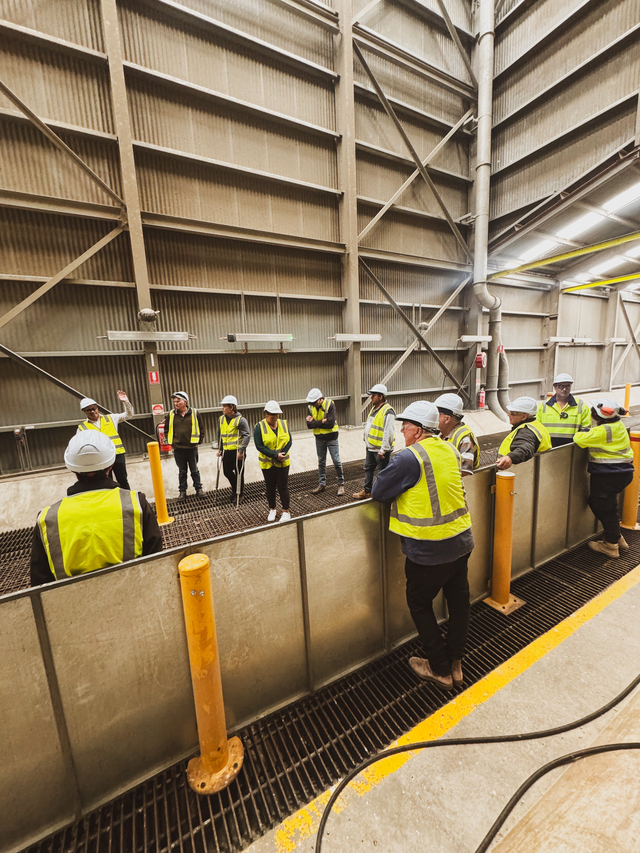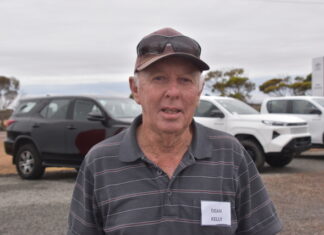A regional multi-partner program building drought preparedness capabilities of agriculture-dependent communities will ensure Eyre Peninsula is better equipped to handle dry and challenging seasons.
Over the past 18 months, Ag Innovation & Research Eyre Peninsula (AIR EP) has worked with local and national organisations to deliver a range of projects designed to upskill community leaders, young farmers, rural women and students to identify and act on their own community’s drought preparedness priorities at a grassroots level.
The projects were supported by a $290,000 grant through the Foundation for Rural and Regional Renewal’s (FRRR) Community Impact Program, which forms part of the Helping Regional Communities Prepare for Drought Initiative funded by the federal government’s Future Drought Fund.
Key projects delivered across EP farming communities included:
• Establishing two Young Farmer groups (Rudall and Far West) and delivering information sessions, site visits, workshops and social connection opportunities for farmers aged 18-35 (Remaining activities will run with the Far West Group between August and December)
• Partnering with Women Together Learning (WoTL) to deliver Regenerate Rural Women and Better Connected Communities programs, aimed at empowering rural women and sharing skills to build local drought preparedness
• Partnering with Cleve Area School to deliver its Future Farmers program – creating new, high school-relevant teaching resources focused on managing dry times and building drought resilience in the local community
• Supporting the Australian Rural Leadership Foundation to deliver Changemaker workshops to more than 30 people at four locations across the EP, aimed at inspiring locally-driven positive change
AIR EP executive officer Naomi Scholz said the FRRR Community Impact Program had extensive reach, equipping farmers and community members in rural areas with the skills to support resilient and connected communities.
“Through the Community Impact Program and the involvement of our partner organisations, we’ve collaboratively delivered a support program that strengthens our local communities, builds their capabilities, creates new leaders and gives them real skills to better prepare for and withstand the challenges of drought,” she said.
“It’s been encouraging to see how each project has made a real impact, from building lasting connections and networks, through to encouraging farmers to apply new drought management and response techniques on-farm.
“It’s also inspired and empowered rural women and young people to take more active roles in preparing their community to prepare for drought, and to lead their community in making other positive changes to address specific local challenges.”
As the project’s local lead organisation, AIR EP worked closely with delivery partners Cleve Area School, (WoTL) and AIR EP’s Young Farmer program over an 18-month period to deliver workshops, events, excursions and learning programs designed to strengthen and prepare EP communities for drought.
AIR EP’s Young Farmer project shared innovative ways to build drought resilience and local leadership, networks and social support with farmers aged 18 to 35.
“We formed two young farmer groups – one in Rudall and one in the Far West,” Ms Scholz said.
“The aim was to build drought resilience by connecting young farmers with others across the agriculture industry, as well as building lasting networks and connections that will continue beyond the original program.”
Through a mix of information sessions, site visits and workshops, the Rudall young farmers learnt about managing soil constraints, derisking sowing, incorporating lentils into farming systems, managing large-scale and mixed farming operations, succession planning, and risk management.
Working with the Cleve Area School, AIR EP supported the Future Farmers project, creating new teaching resources focused on managing dry times and building the broader community’s drought resilience.
Students learned about the science of drought, weed management, climate change and weather forecasting, managing water resources and looking after livestock during dry times.
By partnering with (WoTL), rural women took part in the Regenerate Rural Women and Better Connected Communities programs.
This empowered them with practical tools and strategies to navigate tough seasons, business management knowledge, approaches for managing stress in hard times and a better understanding of their own individual strengths, experiences and core values.
AIR EP also supported the Australian Rural Leadership Foundation to deliver ‘Changemaker’ workshops for over 30 people in Tumby Bay, Cummins, Streaky Bay and Wudinna.
The two-day workshops aimed to shift mindsets and empower participants to become lead positive change by working with others to benefit their communities.
Across the EP, Changemaker participants identified local challenges to tackle.
They ranged from supporting youth mental health to attracting new businesses, inspiring more locals to volunteer, childcare access, housing availability and gender-restricted pathways in local sport.








